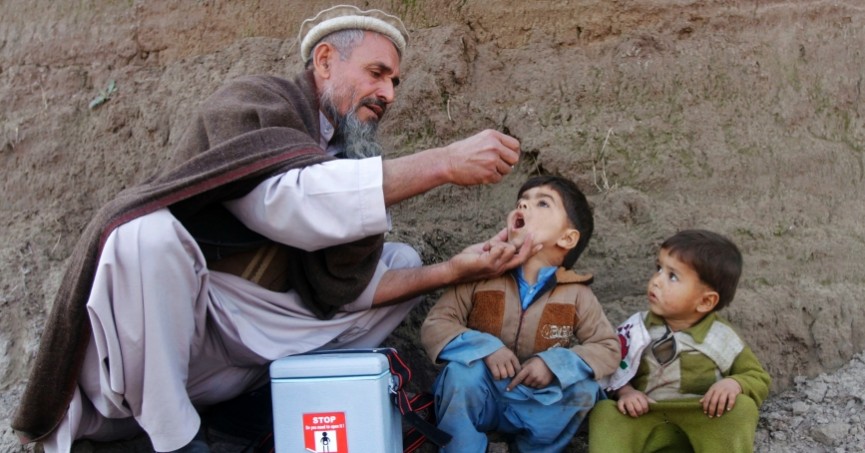Poliovirus is a very serious threat to Afghanistan’s development as the country is miles away from getting the “polio free” status. Conflict that engulfs most parts of the country, anti-polio drives are constantly hampered by insecurity. Although, the health ministry in collaboration with the World Health Organization (WHO) has launched multiple polio vaccination campaigns, but the drives faced resistance in insecure provinces. The government is failing miserably in the fight against polio despite the concerns of world health bodies, because the insurgents greatly limit vaccinators’ access to the children in Helmand and Kandahar provinces.
Recent immunization campaigns against polio face the same fate as the Taliban in Kandahar warned of attacks against the vaccination teams if polio drops were administered to children—depriving nearly 500,000 children under the age of five of vaccination. Situation in Helmand is not different, because the teams are afraid of going to insecure areas. That’s why a polio case was emerged in Khanshin district of the province. It will be too early to predict outcome of the campaigns in Nimroz, Uruzgan, Zabul and Farah provinces. However, it is clear that the anti-polio drives would not yield the desired results, because the insurgents are hell-bent on paralyzing the children of this nation.
Without addressing insecurity or convincing the militant groups to allow the teams to vaccinate the children, the immunization campaigns would end nowhere. Precedents are there. Both the health ministry and WHO jointly spearheaded such initiatives in past as well, but failed to tame polio. First polio case in 12 years was reported in Kabul in December 2013. Few years ago, five polio cases were reported in Nangarhar, seven in Kunar and one in Helmand province. Another positive polio case was detected in Kunar in March 2014. In July 2014, one positive polio case was reported in Khak-i-Safid district of Farah province. Looking at the figures, it is crystal-clear that most of the cases were reported in insecure parts of the country.
To protect the children from this incurable disease, there is need for a different strategy to keep the immunization services rolling out in insecure provinces. In this unpredictable security situation, to improve outcomes in anti-polio campaigns, local elders and religious scholars should be taken on board. Engagement of local elders and ulema is crucial to increase the proportion of children vaccinated.
Furthermore, the campaigns should be rigorously evaluated because without assessment of program coverage and management, transmission of the poliovirus will continue. Continued attention towards high-risk areas to cover the under five population should be top priority of the health authorities. In addition to house-to-house vaccination, the teams should also visit schools, mosques and recreational places to vaccinate children, no matter how far the areas are.
There is no doubt, that the government and world health partners need a boarder strategy to reach the underserved children under the age of five in high risk areas. Success of the immunization campaigns hinges on the well-crafted policies and security situation in the country.
 Afghanistan Times
Afghanistan Times




